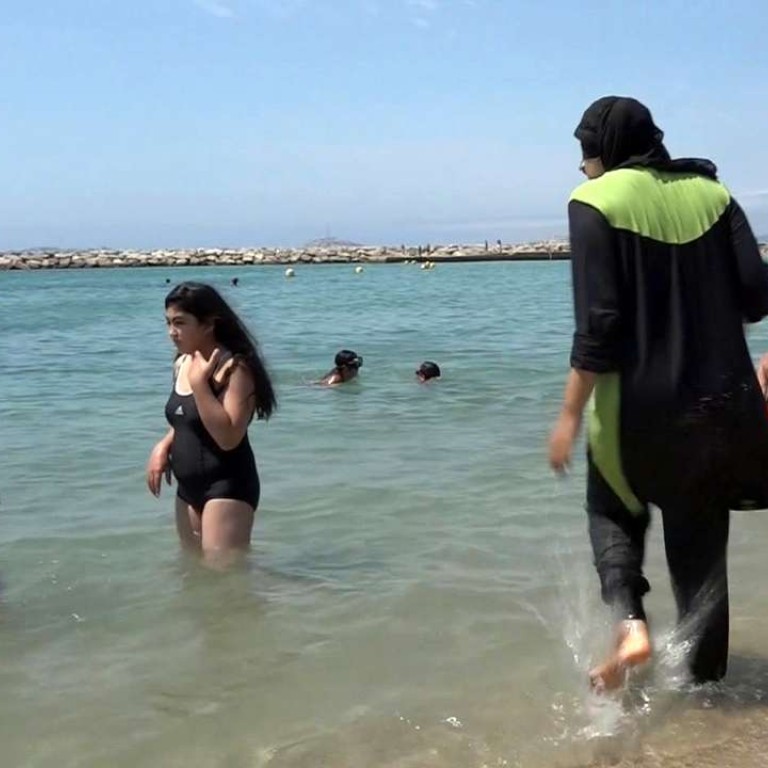
There is a need for common sense in the debate over the burqini
The issue should not be allowed to detract from France’s real struggles with terror and its economic problems
France’s obsession with Muslim women’s attire has deepened after a series of terrorist attacks linked to Islamic State. In addition to bans on face veils and head scarves in schools, dozens of French towns have controversially banned the full-body and head-covering beachwear called the burqini, citing a threat to public order. Given that French parents put toddlers in such costumes to protect them from the sun, it is not surprising this new ban has added fuel to charges of hypocrisy and bigotry.
Cannes mayor David Lisnard said beach attire displaying religious affiliation was likely to create risks, and a Cannes official said it was clothing that conveyed allegiance to terrorism. France’s highest administrative court has upheld its libertarian tradition by overturning one of the bans, and one government minister warned a national ban would be unconstitutional.
It may be true that some male-dominated Muslim societies leave women no option but to wear attire like burqinis but, given the choice, many Muslim women wear them as independent expressions of identity – or just good sense in the sun.
In France, however, the attire has become a symbol of conflict between extremist Islam and Western society and a subject of debate about French secularism. French Prime Minister Manuel Valls backed Lisnard, linking the burqini with a “political project” ... based on the enslavement of women. Valls said secularism was the protection of everyone’s right to believe or not believe. But France’s Muslims feel targeted. To be sure, leaders of Muslim communities who enjoy democratic freedoms need to preach respect for the values of these societies. But in those terms, the burqini is more a dress code of a religion than a “political project”.
Lisnard confused the issue by lumping the burqini in with a ban on beachwear that does not respect “good morals”, such as brief costumes. The reality is a need for common sense – like that of mothers who protect toddlers with full body swimsuits – and tolerance, so the burqini does not divert attention from the real terrorist threat and solving France’s economic woes.

